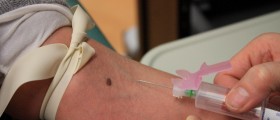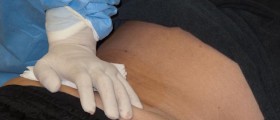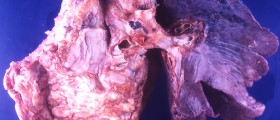
Early days of esophageal cancer usually remain unnoticed because of the lack of any symptoms. Patients feel fine and do not have any problems, although some cells of their esophagus have been malignantly changed. It takes a while until the cancer progresses and starts to cause medical problems, making patients see their doctors.
Commonly Reported Symptoms of Esophageal Cancer
One of the first signs of esophageal cancer is dysphagia, when patients experience difficulties trying to swallow something or feel as if some of the food or drinks has stuck in the throat. It starts as a mild problem and worsens over time. Some patients may even avoid bread or meat, or all solid foods because of this problem in more advanced stages of this cancer.
Chest pain, discomfort and pressure are also very frequently reported problems, while some of these patients also experience unwanted weight loss. Advanced cancer may additionally cause hoarse voice, pneumonia, hiccups or bleeding and black stools.
How is Esophageal Cancer Diagnosed?
A medical history and proper physical exam are necessary for identifying symptoms and problems the patient is experiencing. Your doctor will talk to you and try to gather as much information as possible about all your health problems and once he/she suspects esophageal cancer, you might need additional testing in order for the condition to be confirmed or ruled out.
A barium swallow and computed tomography (CT) scan are two studies you will need to undergo. Barium is liquid and patients are supposed to drink it while undergoing fluoroscopy. Once swallowed, this liquid coats the inside walls of the esophagus, enabling doctors to perform gastrointestinal (GI) series of X rays or just barium swallow test. If there are any problems with the surface of the esophagus, this test will discover it and make it visible for diagnosis.
Barium test is able to confirm esophageal cancer even in early stages (when the tumor looks like a little round bump in the lumen of the esophagus on the X ray scans), but also more advanced esophageal cancers. Later stages of this cancer can be seen as large irregular areas, narrowing the width of the esophageal tube. Barium test is useful to investigate whether there are complications arising from esophageal cancer, like tracheoesophageal fistula. What you cannot know after barium test is whether the cancer has spread to some other tissues or organs.
CT scans provide more detailed images and these are used to determine metastases of esophageal cancer and the exact location of the cancer which is essential for making decision regarding further treatment.

















Your thoughts on this
Loading...